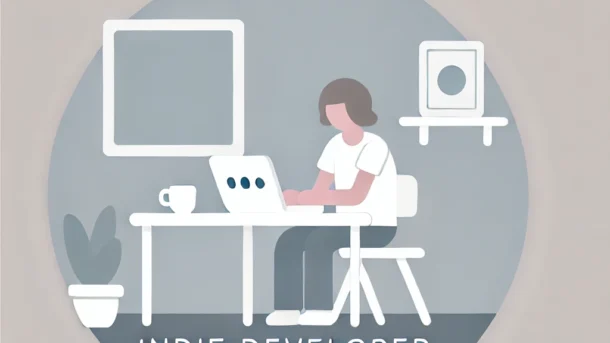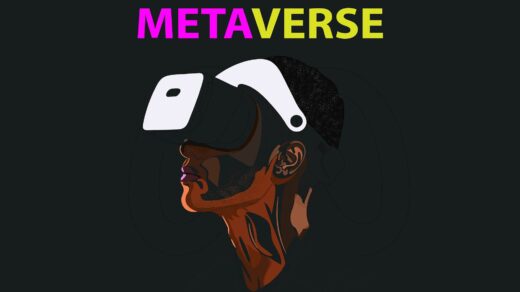In the world of software development, the term Indie Developer or Independent Developer is gaining a lot of attention. These developers work independently or with small teams, free from the constraints of large companies. But what exactly is an Indie Developer? What do they do, and why are they called indie? In this blog post, we’ll explore the concept of indie developers, their roles, responsibilities, and the benefits of choosing the indie development path.
What is an Indie Developer?
An Indie Developer (short for independent developer) is a person who develops software, video games, or mobile apps without being affiliated with a large company. Indie developers often use their own resources and creativity to bring their ideas to life. They work on projects independently or with small teams, often handling everything from coding to design, testing, and even marketing.
Why Are They Called Indie Developers?
The word indie originates from independent, meaning that these developers are not tied to big corporations or publishers. They enjoy the freedom to work on projects that resonate with their personal passions and creativity. Unlike larger companies, indie developers tend to focus more on innovation, unique ideas, and experimental projects, rather than prioritizing mass-market profitability.
What Does an Indie Developer Do?
Indie developers can work on a wide variety of projects, including:
- Video Games: Indie game developers create unique, often experimental games that may not fit into the mainstream gaming market.
- Mobile Apps: Many indie developers create apps for Android and iOS platforms, available on app stores like Google Play and Apple’s App Store.
- Desktop Software: Some indie developers focus on creating productivity tools, utilities, and other desktop applications.
Key Roles and Responsibilities of an Indie Developer:
Project Planning: Indie developers need to create detailed project plans, including development schedules, feature lists, and milestones.
Coding and Programming: They are responsible for writing clean and efficient code for their projects, ensuring optimal performance.
UI/UX Design: Often, indie developers handle the design of the user interface and user experience themselves or collaborate with a designer.
Marketing and Promotion: After building their product, indie developers are usually in charge of promoting it through social media, blogs, or app stores.
Testing and Bug Fixing: Indie developers test their own products for bugs, usability issues, and ensure their product is bug-free.
Financial Management: Since indie developers often self-fund their projects, they must manage their budgets carefully, especially when resources are limited.
Why Become an Indie Developer?
Creative Freedom: One of the most appealing aspects of being an indie developer is the complete creative freedom to build products that reflect personal interests, without the restrictions imposed by corporate structures.
Self-Direction: Indie developers are their own bosses. They set their own timelines, define their own goals, and work at their own pace.
Ownership and Control: With indie development, the developer has full control over every aspect of their product, from design and features to marketing strategies.
Challenges Faced by Indie Developers:
Limited Resources: Indie developers often operate with limited financial and technical resources.
Multiple Roles: Unlike large teams, indie developers may need to juggle multiple roles such as coding, designing, marketing, and customer support.
Market Competition: Competing with big companies can be challenging for indie developers, especially in saturated markets like mobile apps or video games.
Benefits of Being an Indie Developer:
Innovation and Experimentation: Indie developers are often the ones who bring the most innovative and experimental products to market, thanks to their freedom to explore new ideas.
Personal Fulfillment: Building something from the ground up and seeing it succeed can be incredibly fulfilling for an indie developer.
Direct Interaction with Users: Indie developers often have a closer relationship with their users, as they frequently engage in direct communication for feedback and improvements.
Conclusion:
Becoming an Indie Developer is a challenging but rewarding career path. It allows individuals to express their creativity, work on their own terms, and bring unique and innovative products to life. While indie developers may face certain challenges such as limited resources and market competition, the benefits of creative freedom, self-direction, and full product ownership are often worth the effort. If you’re considering venturing into indie development, the key is to be persistent, resourceful, and passionate about what you’re creating.
Are you an aspiring indie developer? What are your thoughts on indie development? Share your experiences in the comments below!
More Topics:
Mastering the Flutter AppBar: Enhancing User Navigation
ListTile Widget: A Deep Dive into Flutter ListTile Widget







Thanks for posting. I really enjoyed reading it, especially because it addressed my problem. http://www.kayswell.com It helped me a lot and I hope it will help others too.